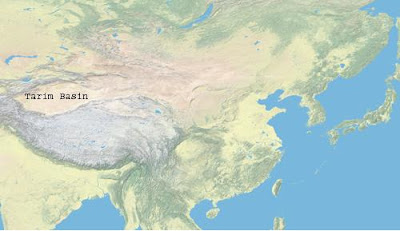Sex/Work for Filipina Migrant Women in South Korea: Explaining Differences in the Practice of Rights for Factory Workers and Club Hostesses
Last Thursday, Professor Hae Yeon Choo gave a talk
titled “Sex/Work for Filipina Migrant Women in South Korea: Explaining
Differences in the Practice of Rights for Factory Workers and Club Hostesses,”
in which she shared the findings of her most recent ethnographic research in
South Korea. The main purpose of her research was to find the reasons for the
discrepancy in “substantive citizenship” (a term that emphasizes the citizens’
enjoyment of rights and benefits as a citizen of a community) experienced by Filipina
migrant women in two sectors of the South Korean labor market—manufacturing and
club hostessing. While a large percentage of those working in factories were
undocumented, most of them were active in the Filipino community on which they
could rely when faced with problems, and had relatively easy access to labor
rights. In contrast, the club hostesses who were on a legal working visa often
experienced mistreatment by their employers and were occasionally sent back to
Philippines involuntarily.
In the end, she
concluded that this difference was due to how gender shaped the organization of
work for migrant factory workers and club workers, and how this gendered labor
process affected the ways in which the South Korean state and civil society
interacted with migrant women: Filipina migrant women were recognized as “women
workers” with valuable skills in the manufacturing sector but as feminized and
infantilized “working girls” in the camptown clubs.
My
first point of criticism rises from the question of whether we can actuall
apply the term “substantive citizenship” to the migrant workers, even if the
term is used quite differently from formal citizenship. In her talk she defined
substantive citizenship as “citizenship as an interactive process that involves
both the host society and migrants as active agents in creating inclusion and
exclusion within the structures of law and policy.” In the context of her
research, we can see that the “host society” here refers to the Korean civil
society. I felt that when she was describing the situation of the migrant women
working in factory towns, she mostly mentioned about how they interacted with
other members in the Filipino migrant community, and did not explain enough
about their interaction with the Korean civil society. She did bring up the Korean
government (state), the employers, and some migrant advocacy NGOs, but in my
opinion these people and institutions do not necessarily represent the Korean
civil society as a whole. I felt that she should have elaborated on how the
commoners in the Korean society perceive of them and relate to them.
In addition, I
would like to point out that under certain circumstances the term “substantive
citizenship” can be a dangerous term to use. The word itself implies that the borderline
that separates citizens from non-citizens is not fixed, and this idea could
justify the illegal migrants’ arguing for rights in the host society. We cannot
ignore the possible social consequences that may follow the undocumented
workers’ overuse or misuse of this type of citizenship, which may be especially
risky regarding the fact that they are undocumented and therefore unable to be
traced by the government.
On the whole, I was impressed by
her findings and the extent to which she herself got deeply involved in the
Filipino migrant communities to conduct her research. However, I thought that
if had she been more careful about borrowing certain concepts from the
literature on her field (the idea of “substantive citizenship”) and
incorporating them into her research, she could have made a more sound
argument.
Minh Joo Yi, SAS'13


Comments
Post a Comment
We follow the House Rules as outlined by the BBC here.